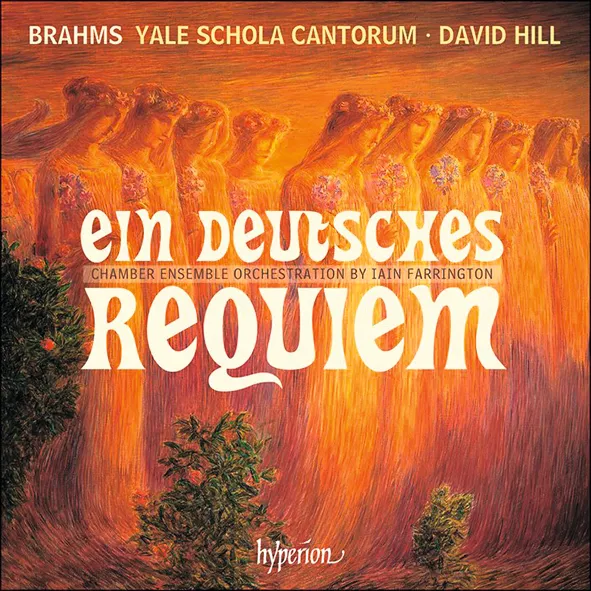
Brahms Ein deutsches Requiem Natasha Schnur (soprano), Matt Sullivan (baritone); Yale Schola Cantorum; Meera Gudipati (flute), Olav van Hezewijk (oboe), Graeme Steele Johnson (clarinet), Julie Eskar (violin), Ettore Causa (viola), Ezra Seltzer (cello), Luke Stence (double bass), Wei-Yi Wang (piano)/David Hill Hyperion CDA68242 66:21 mins
The chamber orchestration of Ein deutsches Requiem used in this recording works better in some movements than it does in others. Iain Farrington’s reduction – for single strings, flute, oboe, clarinet and piano – certainly emphasises the sense of intimate consolation in movements such as the opening ‘Selig sind, sie da Leid tragen’ and ‘Wie lieblich sind deine Wohnungen’. In a movement like ‘Denn alles Fleisch es ist wie Gras’, however, the deliberate monumentalism of Brahms’s original scoring for full orchestra – the sense of large, implacable forces above and beyond human control and comprehension – is substantially diluted.
The choral singing itself is excellent. The 32-member Yale Schola Cantorum is full of young, vibrant voices, and they respond with alacrity and sensitivity to David Hill’s vastly experienced direction. The ‘sounding trumpet’ section in ‘Denn wir haben hie keine bleibende Statt’ is attacked with fire and precision, and the concluding ‘Selig sind die Toten’ brings an impressive display of alluring tonal blend and moving expressivity. The two soloists match the choir in youthfulness and ardour, although both have vibratos that occasionally interfere with vocal stability. The church acoustic works well in the music’s quieter moments, but the recorded sound becomes slightly cloudy in tutti. This is the CD premiere of Farrington’s chamber version of the Requiem, and it will interest choirs unable to link up with a symphony orchestra. But Brahms’s own four-hand reduction for piano already exists for that purpose, and I’m not sure that this chamber version is decisively better.
Terry Blain